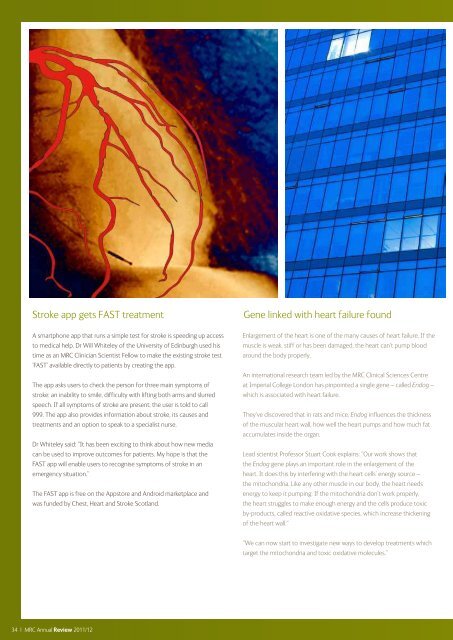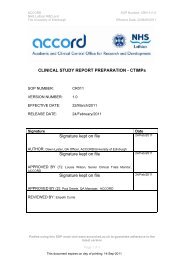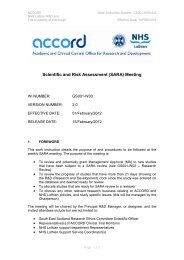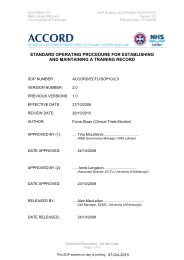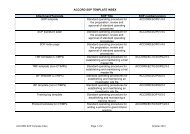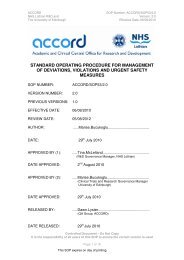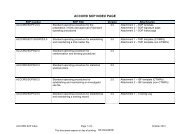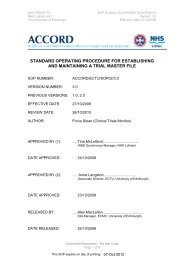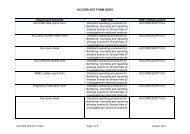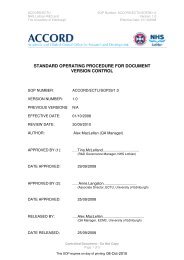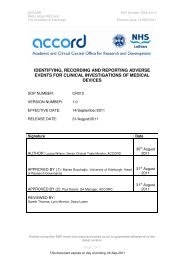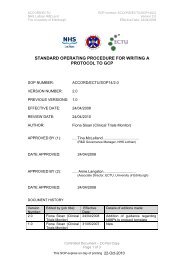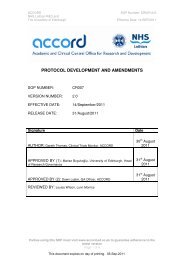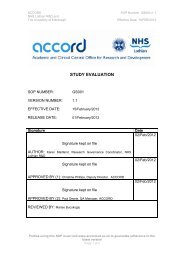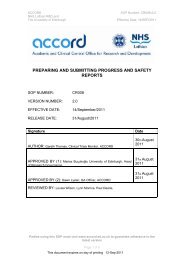Advancing medicine, changing lives - Medical Research Council
Advancing medicine, changing lives - Medical Research Council
Advancing medicine, changing lives - Medical Research Council
You also want an ePaper? Increase the reach of your titles
YUMPU automatically turns print PDFs into web optimized ePapers that Google loves.
“Those who worked<br />
11 hours or more<br />
a day were 67 per<br />
cent more likely<br />
to have had a<br />
heart attack.”<br />
Stroke app gets FAST treatment<br />
Gene linked with heart failure found<br />
Long working day boosts heart attack risk<br />
A new heart ‘self-repair’ drug<br />
A smartphone app that runs a simple test for stroke is speeding up access<br />
to medical help. Dr Will Whiteley of the University of Edinburgh used his<br />
time as an MRC Clinician Scientist Fellow to make the existing stroke test<br />
‘FAST’ available directly to patients by creating the app.<br />
The app asks users to check the person for three main symptoms of<br />
stroke: an inability to smile, difficulty with lifting both arms and slurred<br />
speech. If all symptoms of stroke are present, the user is told to call<br />
999. The app also provides information about stroke, its causes and<br />
treatments and an option to speak to a specialist nurse.<br />
Dr Whiteley said: “It has been exciting to think about how new media<br />
can be used to improve outcomes for patients. My hope is that the<br />
FAST app will enable users to recognise symptoms of stroke in an<br />
emergency situation.’’<br />
The FAST app is free on the Appstore and Android marketplace and<br />
was funded by Chest, Heart and Stroke Scotland.<br />
Enlargement of the heart is one of the many causes of heart failure. If the<br />
muscle is weak, stiff or has been damaged, the heart can’t pump blood<br />
around the body properly.<br />
An international research team led by the MRC Clinical Sciences Centre<br />
at Imperial College London has pinpointed a single gene – called Endog –<br />
which is associated with heart failure.<br />
They’ve discovered that in rats and mice, Endog influences the thickness<br />
of the muscular heart wall, how well the heart pumps and how much fat<br />
accumulates inside the organ.<br />
Lead scientist Professor Stuart Cook explains: “Our work shows that<br />
the Endog gene plays an important role in the enlargement of the<br />
heart. It does this by interfering with the heart cells’ energy source –<br />
the mitochondria. Like any other muscle in our body, the heart needs<br />
energy to keep it pumping. If the mitochondria don’t work properly,<br />
the heart struggles to make enough energy and the cells produce toxic<br />
by-products, called reactive oxidative species, which increase thickening<br />
of the heart wall.”<br />
“We can now start to investigate new ways to develop treatments which<br />
target the mitochondria and toxic oxidative molecules.”<br />
Regularly putting in a long working day can dramatically raise your risk<br />
of getting heart disease, research part-funded by the MRC suggests.<br />
Scientists from University College London (UCL) used data from the<br />
Whitehall II study, which has tracked the health of over 10,000 civil<br />
servants since 1985. The UCL research followed 7,095 men and women<br />
who worked full time and were healthy at the start of the study. Data<br />
were collected on age, blood pressure, cholesterol levels and smoking<br />
habits and the number of hours worked on an average week day.<br />
Over the next 11 years, researchers collected information from health<br />
records and discovered that those who worked 11 hours or more a day<br />
were 67 per cent more likely to have had a heart attack than those who<br />
worked an average day of seven to eight hours.<br />
Lead scientist Professor Mika Kivimäki says: “This new information<br />
should help improve decisions about medication for heart disease.<br />
It could also be a wake-up call for people who overwork themselves,<br />
especially if they already have other risk factors.”<br />
A promising new drug which could encourage the heart to<br />
self-repair after a heart attack is in the pipeline, thanks to an<br />
MRC-funded discovery.<br />
US pharmaceutical company RegeneRx is gearing up to begin a phase II<br />
clinical trial of a protein called Thymosin Beta 4 (Tβ4), which is able to<br />
instruct the heart to heal itself by guiding cells from the outermost layer<br />
of the heart to move deeper inside and help to repair tissue.<br />
The discovery that Tβ4 could mobilise these dormant cells to form<br />
new blood vessels was made by Professor Paul Riley at the University of<br />
Oxford in 2006, with support from an MRC Career Establishment Grant<br />
and the British Heart Foundation. The potential repair cells are known as<br />
epicardial progenitors, and can change into different cells depending on<br />
the signals they receive in the body.<br />
<strong>Research</strong> in mice carried out by scientists at the University of California<br />
San Francisco has shown that Tβ4, given in combination with gene<br />
therapy, can convert non-beating heart cells (which normally form scar<br />
tissue after a heart attack), into functional, beating heart cells within<br />
one month.<br />
RegeneRx carried out a first-in-man study which has shown the<br />
treatment to be safe and are now planning a phase II study to test<br />
how effective the drug is in heart attack patients.<br />
Professor Riley commented: “It’s exciting to see Tβ4 progress towards<br />
helping patients after our breakthrough discovery several years ago.”<br />
34 | MRC Annual Review 2011/12 MRC Annual Review 2011/12 | 35


